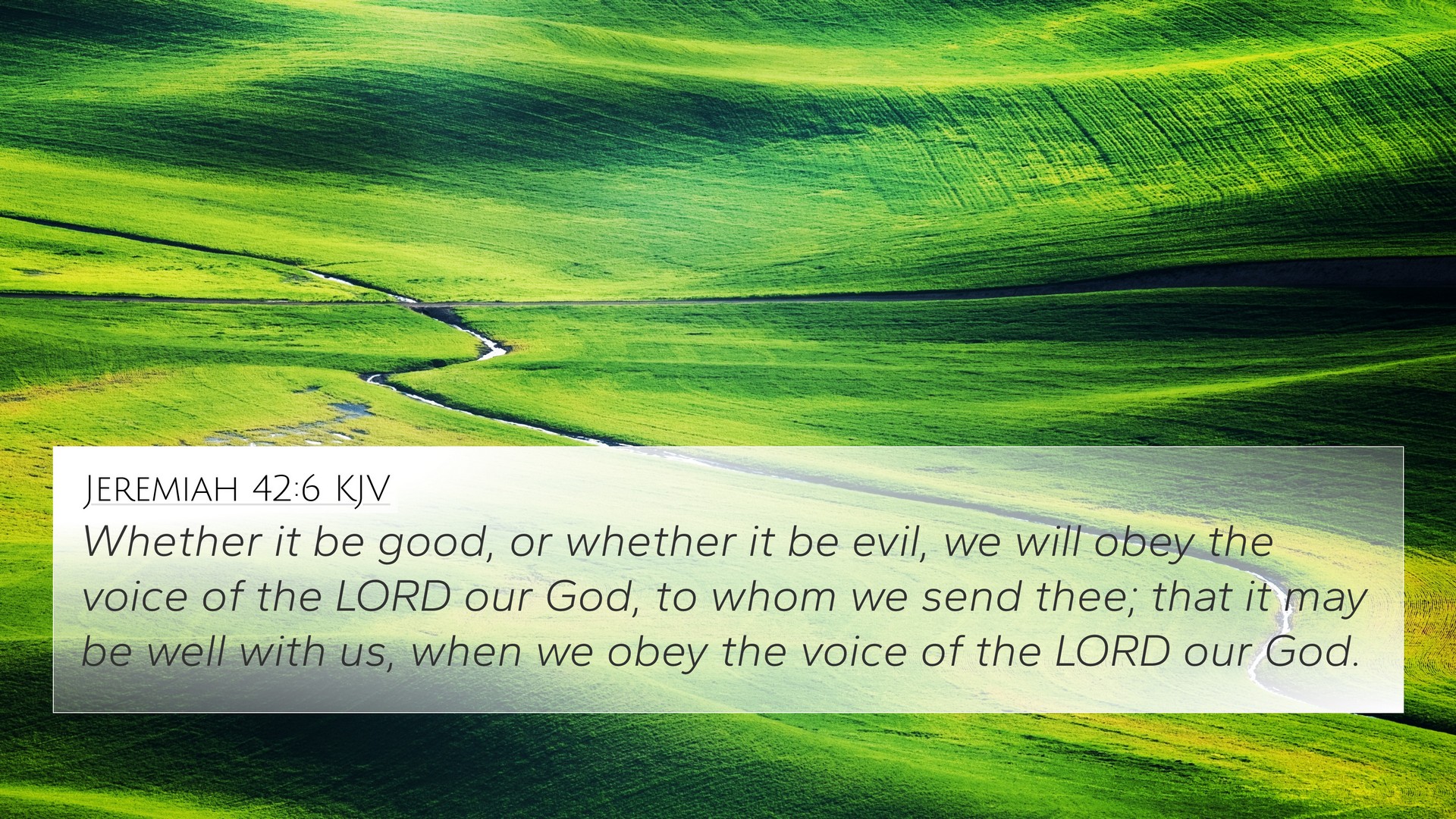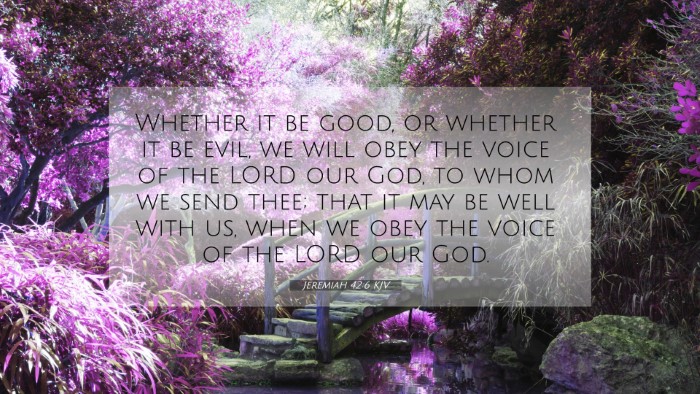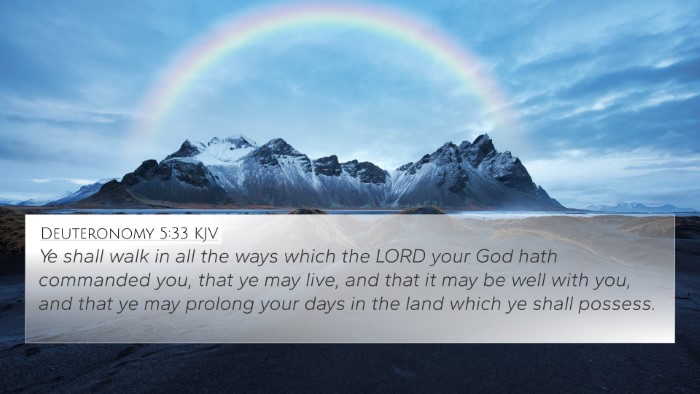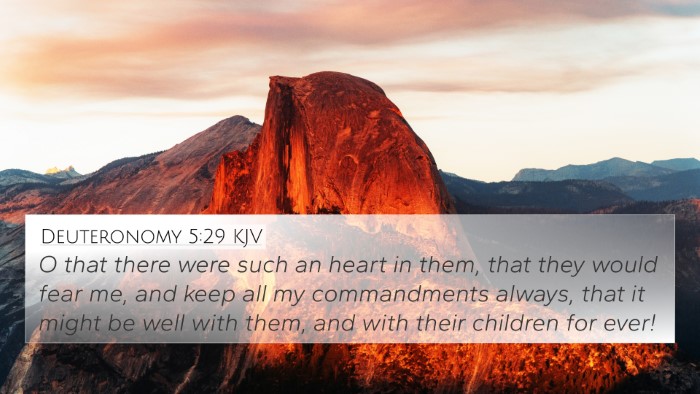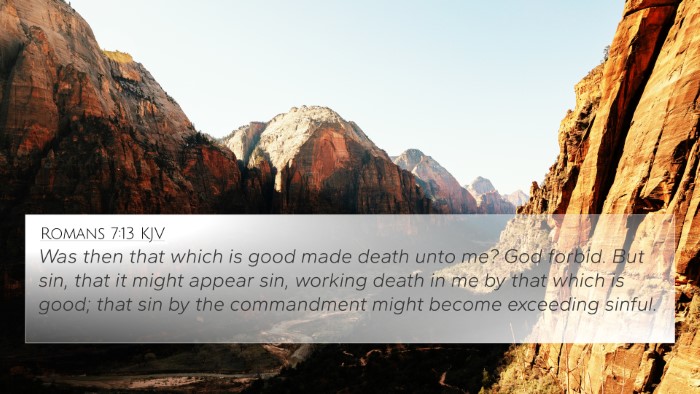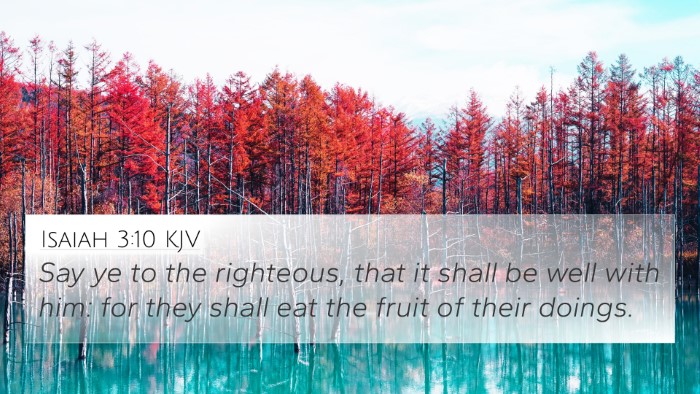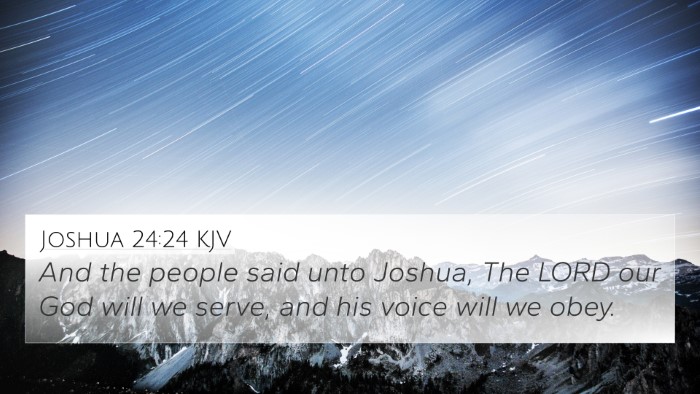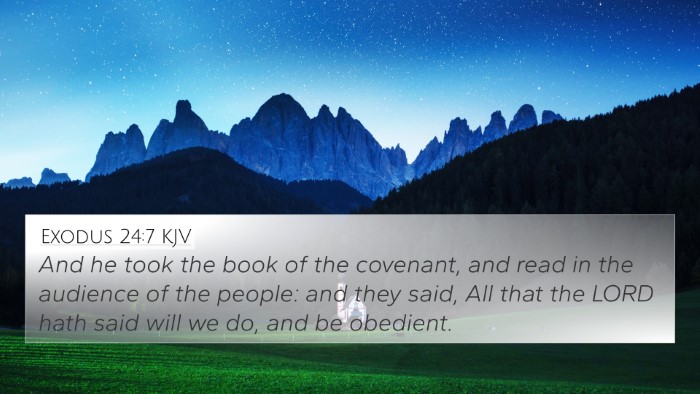Understanding Jeremiah 42:6
Jeremiah 42:6 states, "Whether it be good, or whether it be evil, we will obey the voice of the LORD our God, to whom we send thee; that it may be well with us, when we obey the voice of the LORD our God." This verse captures a moment of decision for the people of Judah after the fall of Jerusalem. It reflects their commitment to heed God's instruction, regardless of the outcome.
Contextual Overview
The backdrop of Jeremiah 42 involves the remnant of Judah seeking direction after the Babylonian exile. They ask Jeremiah to inquire of the Lord regarding their future and demonstrate a desire for obedience. This commitment, however, is put to the test in subsequent chapters.
Commentary Insights
Matthew Henry's Commentary
Matthew Henry comments that the people's pledge to God reflects both fear and hope. They desire to escape the consequences of their actions and seek to return to God, showing a mix of genuine faith and desperation. Their commitment, however, is flawed by a lack of true understanding and belief in God’s promises, leading to tragic results in their later disobedience.
Albert Barnes' Notes
Albert Barnes emphasizes the importance of obedience as a central theme in this passage. He asserts that acknowledging God's voice and following His directives are vital for the well-being of the people. Barnes notes that while the people's words are commendable, they struggle to maintain their commitment under pressure. This reflects a broader theme of human nature in spiritual matters, showcasing the difficulty of true faithfulness.
Adam Clarke's Commentary
Adam Clarke explains that the phrase "whether it be good or evil" indicates an acknowledgment of God's sovereignty, and a readiness to accept His will, irrespective of perceived outcomes. Clarke highlights that the people's declaration comes from a sincere place of seeking guidance but warns that their actions following this statement will prove their true intentions.
Bible Cross-References
This verse connects with several other scriptures that echo the themes of obedience, faithfulness, and God’s guidance:
- Deuteronomy 30:19-20 - A call to choose life and love God, committing to His ways.
- Jeremiah 7:23 - The necessity of obeying God’s voice as an act of faith.
- Romans 12:1-2 - Presenting oneself as a living sacrifice, aligning with God's will.
- Matthew 7:24 - The importance of acting on Jesus' teachings, similar to a wise builder.
- James 1:22 - Encouragement to be doers of the word, not just hearers.
- 1 Samuel 15:22 - Highlights that obedience is better than sacrifice, reinforcing commitment to God.
- Psalms 119:2 - Blessed are those who keep God's testimonies and seek Him with a full heart.
Thematic Connections
The commitment expressed in Jeremiah 42:6 acts as a pivot, illustrating the dynamics of faith and the struggle inherent in obeying God's directives. The thematic connections can be examined as follows:
- Faith in Adversity: Many scriptures depict a required faithfulness in challenging times, strongly resonating with the struggles faced by Judah.
- Divine Guidance: The people sought clarity and direction from the Lord, a motif found throughout the Bible.
- Obedience vs. Circumstances: The tension between following God’s commands and the circumstances is a recurrent topic within the biblical narrative.
Conclusion
Jeremiah 42:6 serves as a poignant reminder of the human desire for divine guidance amid turmoil. It encourages readers to reflect on their own commitments and challenges faced in obedience to God. This passage emphasizes the importance of not just verbalizing a desire to follow God, but actively living out that commitment amidst life's unpredictability.
